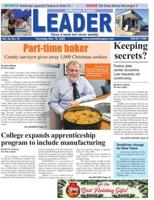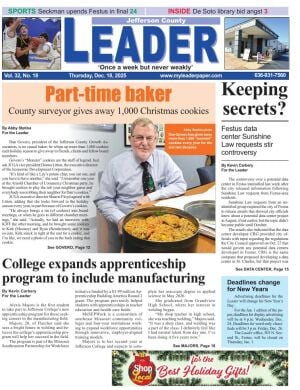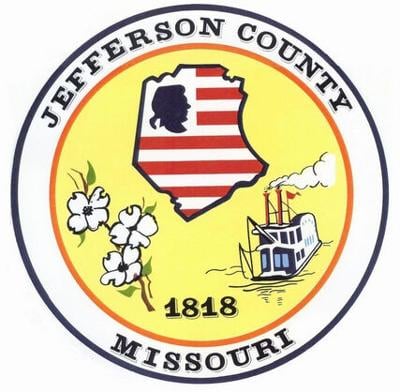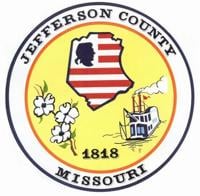The Jefferson County Council is moving forward with a proposal to place a question on the April 7, 2026, municipal election ballot, which, if approved, would add a 5 percent tax to all stays at hotels or motels in unincorporated Jefferson County.
Councilman Scott Seek (District 5, Festus) proposed the countywide “bed tax” last year but could not attend the August 2024 meeting when the vote was taken, and the measure was struck down 3-2. Former Councilman Dan Stallman (District 6, De Soto) and current council members Bob Tullock (District 7, House Springs) and Charles Groeteke (District 4, Barnhart) voted against it. Council members Lori Arons (District 3, Imperial) and Brian Haskins (District 1, High Ridge) voted in favor. Former Councilman Gene Barbagallo (District 2, Imperial) abstained from the vote.
Seek tried again this year, tweaking the language for the proposed ballot measure over several work sessions in an effort to garner more positive votes from the council. The council’s makeup has also changed since last year, with Tim Brown of De Soto now representing District 6 and Billy Crow of Arnold representing District 2.
The council voted 6-1 in a preliminary vote on Aug. 25 to approve Seek’s proposal, with Groeteke still voting “No.” The council must vote on the issue two more times before it can be put on a future ballot.
Groeteke said his reasoning for voting no on the hotel-motel tax was the same last year as it is now.
“The only way to keep from paying more taxes is to not vote for them,” he said.
Seek said approving the measure would lessen the tax burden on county residents since most of those who would be charged the bed tax would be from outside the area.
“I have heard strong support for this proposal from across my district,” he said. “What is particularly notable is that this is not just support for the concept itself, but a clear desire to see the measure placed on the ballot so that the people may decide. This tax would not directly affect Jefferson County residents but would support tourism and commerce by creating revenue from visitor events.
“Letting the people vote empowers them to shape our community’s future, one that relies less on internal tax burdens and more on economic growth through external participation.”
The proposed ballot language reads, “Shall Jefferson County, Missouri, levy a tax of 5 percent on each sleeping room occupied and rented by “transient guests” (as defined by RSMo 67.1000) of “hotels and motels” (defined as an establishment that provides lodging and/or parking or rooms that are accessible to an outdoor parking area and usually provides meals, entertainment and various personal services for the public to include but not limited to hotels, motels, bed & breakfasts, etc.) located in the county, to exclude any hotels and motels in any municipality within the county that already imposes a transient tax under RSMo 67.1000 or any other transient tax under Missouri law, where the proceeds of which shall be expended solely for funding a convention and visitors bureau?”
According to county documents, the measure would require a simple majority vote for approval.
Arnold, Festus and Pevely are the only cities in Jefferson County that collect a hotel-motel tax.
According to Arnold city documents, its Tourism Commission typically receives about $200,000 annually from its 5 percent tax on hotel and motel stays. A five-member commission uses the revenue to help fund city events like Arnold Days and to award grants to community groups to hold events that bolster tourism in the city.
The Festus Tourism Commission funds grants with revenue from the city’s 5 percent hotel-motel tax. The commission awarded 31 grants totaling $418,070.49 last year, including to the Spotlight Community Theatre and pickleball enthusiast Jim Berger, who helps organize various tournaments at the Jim & Michelle Berger Pickleball Courts in Festus.
County Executive Dennis Gannon said the countywide hotel-motel tax had potential.
“I didn’t like it (when Festus first started collecting the tax),” he said. “I thought it was a money grab. I also served on the first Festus Tourism Commission … they had some struggles getting it right, (but) it’s right now, and Festus is flourishing with some of the activities they have there. That’s some money we could capture.”
St. Louis County has two fees on all lodging facilities – a 3.75 percent convention and tourism tax benefiting the Convention and Visitors Commission, and a 3.5 percent convention and sports tax used to pay for tourism infrastructure, such as the Dome at America’s Center.
St. Charles County has a 5 percent tax on stays at hotels and motels.
Which election?
Brown, who ultimately voted in favor of Seek’s proposal, questioned which election would be best to hold the hotel-motel question. He said at the Aug. 25 meeting that the county may have to place a measure on the April ballot regarding a freeze on property tax that was included in Senate Bill 3, and it may be better not to have the bed tax on that same ballot.
The bill was approved during a Missouri Legislature special session in June, allowing people to vote on and potentially approve a real estate property tax freeze in many Missouri counties, including Jefferson County, at the April 7 election. Voters in certain other counties, such as St. Louis County and Greene County, would not be allowed to vote to freeze their taxes under current legislation. Lawsuits have been filed challenging the measure.
Brown suggested the council take its time voting to approve the proposal and possibly amend it at a future meeting to change the election date to August.
Putting the hotel-motel tax on the same ballot as the property tax freeze initiative may be cost-effective for the county, since the election would be state-mandated. It could save the county from spending approximately $150,000 to put the hotel-motel tax question on the same ballot as the property tax freeze question. However, Brown said the April election may have its downsides.
“I want to support this and I want to see this go through for (Seek), but I’m concerned that people might show up to support the tax freeze, if it’s there, and they’re going to say, ‘Oh, look, a tax freeze to lower my taxes,” and then right on the same ballot, you’re going to see another tax, and it could be negative,” Brown said. “A lot of information is going to have to go into this (ballot measure) to let people know this isn’t a tax targeted at them.”
Arons agreed with Brown, adding that typically more people come out to vote at the August election than the April election.
Gannon said Seek’s proposal still needs to be perfected and finally passed at later meetings, allowing county staff time to research and monitor the property tax freeze issue. Seek’s proposal could be amended up until final passage, he said.
The council’s next meeting is at 6:30 p.m. Monday, Sept. 8, at the Jefferson County Administrative Office, 729 Maple St., in Hillsboro.
“We have two more weeks where we can ascertain that question, amend the document and move forward,” Gannon said on Aug. 25. “One thing is true: If we never take action, we’ll never find out the answer (from county voters).”




